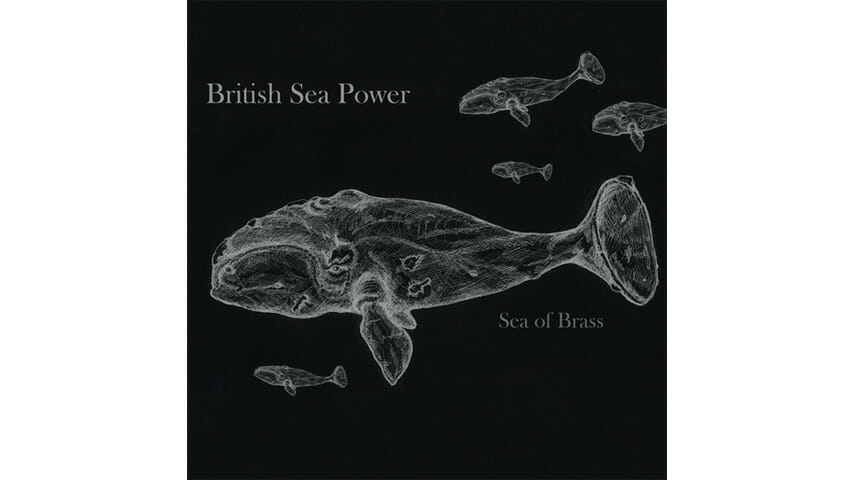
There’s a certain overblown attitude that’s implied by naming your band British Sea Power and filling pages and pages of your CD booklet with an extensive backstory based on the pursuit of your muse. Of course, even if those elements weren’t present to begin with, the flourish and pageantry that’s always been so essential to British Sea Power’s sound would make it seem somewhat auspicious to begin with. Pomp and circumstance have been the band’s calling card since the beginning, starting with their extravagantly dubbed debut, The Decline of British Sea Power, and proceeding through to the present. Granted, there have been certain entries in their catalog that have suggested some attempt at grounding their ambitions—a pointed album title like Do You Like Rock Music? for one, and the singular sentiment of their documentary soundtrack Happiness for another. Yet, given their penchant for eccentricity—as expressed in elaborate stage set-ups bedecked with foliage, plastic birds and a eight-foot-tall bear nicknamed Ursine Ultra, as well as a tendency to interject discourses on bird-watching into their encounters with the press—there’s reason to believe that whatever it is that’s dictating their M.O. is tied to far more than merely their music.
Given the disparate circumstance that they immerse themselves in, it’s little surprise to find the divinely inspired “Heavenly Waters,” the opening number on their new album Sea of Brass, flush with full symphonic splendor. While the band are credited with its composition, it’s orchestral in its execution, a grandiose way to jump-start an album that only gets more starry-eyed as it progresses. “One More Now” and “Albert’s Eyes” find the music saturated with strings, but by the time “Atom” arrives as the fourth track, the instrumentation leans more on the weight of the band and its brass accompaniment. It’s no less dramatic (after all, this wouldn’t be British Sea Power were it not for that blend of frenzy and finesse), but it’s evident that the dynamic is still wholly their own.
Indeed, there’s not a single moment in Sea of Brass in which the pacing isn’t fully charged. Vocalist Jan Scott Wilkinson maintains a generally upward gaze, his voice a vivid croon flush with drama and defiance. Even when things revert to the atmospheric ambiance of “When a Warm Wind Blows Through the Grass,” there’s an eerie pastiche and an inflated mystique. Things come to a close with another instrumental extravaganza in the form of “The Great Skua,” making it a fitting way to end an album that’s all crescendos and cascades.
Granted, Brass doesn’t exactly qualify as real rock, indie or otherwise. Still, there’s passion that’s gleaned from British Sea Power’s attempt at something bolder, a sweeping sound that literally echoes from the rafters. Does grandeur for the sake of grandeur merit such indulgence? British Sea Power seems to think so.